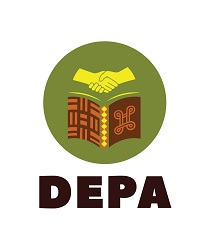Introduction
The Nigeria team is lead by Dr Abubakar Umar Kari at the University of Abuja and Tominke Olaniyan from PADEAP (The Pan African Development Education and Advocacy Programme). The project in Nigeria is working in IDP (Internally Displaced Persons) camps in Nigeria and the research takes a holistic and long-term approach, to fully understand the lives of those affected by conflict and to ensure their well-being both whilst sharing their stories and experiences with the team, and beyond.
Nigerian Context
Nigeria currently has the 3rd largest number of internally displaced persons (IDPs) in Africa, with 3.3million displaced from their homes but living in their country borders. In Nigeria internal displacement is due to overlapping and intersecting problems including protracted violence and climate change. Boko Haram and other non-state armed groups, alongside clashes between herders and farmers have pushed Nigerians out of their homes, especially from parts of North-East Nigeria and the country’s Middle Belt, but increasingly also in North-West Nigeria.
DEPA Nigeria is conducting its decolonial participatory action-based research project in Abuja, Nigeria. In Abuja, there are several camps for Internally Displaced Persons from Borno and Adamawa states who have been displaced by the Boko Haram insurgencies. The IDP camps vary from barely habitable cluster of tents made of tarpaulin, zinc, and fabric, to partially completed buildings. The traumatised and vulnerable IDP’s lack basic amenities, including water, adequate healthcare, and education.
Our arts-based methods include storytelling/ oral histories and photovoice alongside working with Nigerian artists for justice and peace, seeks to collaborate and support IDPs in New Kuchingoro, Wassa and Malaysia Gardens, the three camps have a population of over 7,500 IDPs. The displaced people living in the camps speak several Nigerian minority languages. The languages including Glavda, Gudof, Gava, Chinene, Zalidva, Chikide, Mafa and Mandara. The main language spoken in New Kuchingoro especially by the elders in the community is the Glavda language. Glavda is a minority Afro-Asiatic language spoken by approximately 60,000 people from Borno State, Northeast Nigeria, and Northern Cameroon. It is recognised as one of the languages that is disappearing. The notion of peace is being investigated through specific thematic areas identified by the IDP communities and participants.

